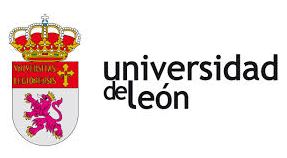The impact of mycobacteria-induced trained immunity on SARS-CoV-2 vaccine responses
Artículo de investigación publicado en Frontiers in immunology
3 de septiembre de 2025
Introduction: Beyond the role of Bacillus Calmette-Guérin (BCG) for tuberculosis prevention, BCG has demonstrated heterologous protective effects. The global health crisis caused by the SARS-CoV-2 virus led to research on whether BCG-induced trained immunity could strengthen antiviral defenses. However, studies reported quite different results on its effect against COVID-19.
Methods and results: In this study, we evaluated the impact of pre-existing trained immunity induced by a BCG-derived Mycobacterium bovis strain (dpB), in both live and inactivated forms, in combination with SARS-CoV-2 vaccination prior to challenge in a mouse model. While the SARS-CoV-2 vaccine was enough for protection in morbidity and mortality terms, its combination with live dpB significantly enhanced immune responses reflected in higher levels of pro-inflammatory cytokines, reduced pulmonary viral loads, and improved histopathological outcomes. Additionally, the formation of inducible bronchus-associated lymphoid tissue (iBALT) in lungs in vaccinated animals pre-exposed to live dpB points to a potential mechanism for long-term immune surveillance in the respiratory tract.
Conclusions: These immunological findings highlight the potential benefits of integrating trained immunity inducers with pathogen-specific vaccines to enhance immune responses and protection. Further research is needed to optimize immunomodulation strategies, dosing regimens and administration routes to maximize these synergistic effects and prevent potential negative effects.
Sánchez-Morales L., Porras N., Perez-Domingo A., Perez-Sancho M., Garcia-Seco T., Diaz-de Frutos M., Buendia A., Moreno I., Zamora L., Balseiro A., Risalde MA., Rodriguez-Bertos A., Gortazar C., Dominguez M. y Dominguez L..
 | Servicio de Identificación y Caracterización Microbiana (ICM). Centro de Vigilancia Sanitaria Veterinaria (VISAVET). Universidad Complutense (UCM). |
 | Departamento de Sanidad Animal. Facultad de Veterinaria. Universidad Complutense (UCM). |
| Servicio de Inmunología. Centro Nacional de Microbiología (CNM). Instituto de Salud Carlos III (ISCIII). | |
 | Departamento de Sanidad Animal. Facultad de Veterinaria. Universidad de León. |
| Instituto de Ganadería de Montaña. Consejo Superior de Investigaciones Científicas (CSIC). | |
| Departamento de Anatomía y Anatomía Patológica Comparadas. Facultad de Veterinaria. Universidad de Córdoba (UCO). | |
| Unidad de Investigación Competitiva de Zoonosis y Enfermedades Emergentes (ENZOEM). Universidad de Córdoba (UCO). | |
 | Departamento de Medicina y Cirugía Animal. Facultad de Veterinaria. Universidad Complutense (UCM). |
| Sanidad y Biotecnología (SaBio). Instituto de Investigación en Recursos Cinegéticos (IREC). Consejo Superior de Investigaciones Científicas (CSIC). Universidad de Castilla La Mancha (UCLM). Gobierno de Castilla-La Mancha (JCCM). | |

